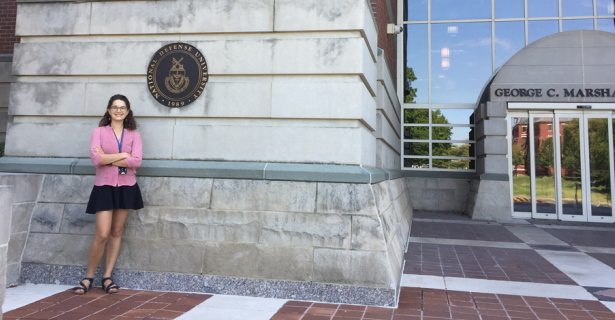When I decided to intern for the summer at the National Defense University’s Center for Complex Operations, my family and peers questioned whether the organization had any mission. The CCO name is vague, having originated in the aftermath of American strategic reevaluations of military standards of practice in the complex and chaotic environments of post-invasion Iraq and Afghanistan. NDU’s CCO was established to encourage joint, cooperative training and education that furthered the military’s understanding of “complex” environments - those situations which we can’t shoot our way out of, but rather must approach with an eye towards learning and understanding.
I am working as an editorial intern on the CCO’s PRISM, “a security studies journal chartered to inform members of U.S. Federal Agencies, Allies, and other partners on complex and integrated national security operations; reconstruction and nationbuilding; relevant policy and strategy; lessons learned; and developments in training and education to transform America’s security and development apparatus to meet tomorrow’s challenges better while promoting freedom today.”
This experience is contributing to a new process of understanding, developing my workplace expectations to match the joint and integrated environment of this security-focused, research office. Although the center encourages academic integrity and freedom of research, our mission and very location on Fort McNair, one of the oldest military establishments in the United States and an active joint military base, presents a difficult balance of government procedure and research processes. Our reports are directly intended to help the U.S. military learn lessons it may otherwise ignore and to bring together the “interagency” cooperative process which is fragmented in its very choice of acronyms.
I’ve compiled language transliteration guides in an attempt to normalize relations between the defense, diplomacy and development communities we feature in the publication and the outside world with which they interact. Similarly, I’ve watched experts around the DC area cooperate and disagree as they confront the chaos that many U.S. military strategies have contributed to: the ungoverned areas in East Africa and the Middle East, the chaotic reconstruction of Afghanistan, and anti-American sentiment abroad throughout public relations ups and downs of the last election cycle. Throughout this summer, as I begin to decide where in this complicated scene I see myself after graduation, I’ve endeavored to understand the effort and sincerity of each actor within this complex schema of operations. I’m grateful that my colleagues are attempting to understand the bigger and more integrated picture, and I hope to carry that perspective into the work I complete throughout my career.

